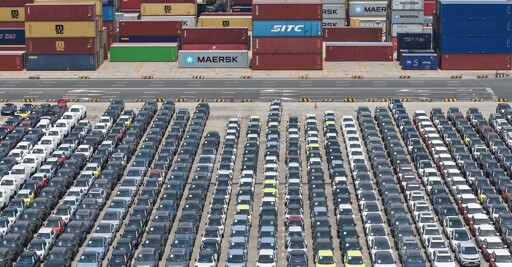[…]
Bloated by excessive investment, distorted by government intervention, and plagued by heavy losses, China’s EV industry appears destined for a crash. EV companies are locked in a cutthroat struggle for survival. Wei Jianjun, the chairman of the Chinese automaker Great Wall Motor, warned in May that China’s car industry could tumble into a financial crisis; it “just hasn’t erupted yet.”
To bypass government censorship of bad economic news, market analysts have opted for a seemingly anodyne term to describe the Chinese car industry’s downward spiral: involution, which connotes falling in on oneself.
[…]
The wobbles in China’s EV sector demonstrate the downside of China’s state-led economic model. China’s government threw ample resources at the EV industry in the hopes of leapfrogging foreign rivals in the transition to battery-powered vehicles. The Center for Strategic and International Studies estimates that the government provided more than $230 billion of financial assistance to the EV sector from 2009 to 2023. The strategy worked: China’s EV makers would likely never have grown as quickly as they have without this substantial state support. By comparison, the recent Republican-sponsored tax bill eliminated nearly all federal subsidies for EVs in the U.S.
The problem is that China’s program encouraged too much investment in the sector. Michael Dunne, the CEO of Dunne Insights, a California-based consulting firm focused on the EV industry, counts 46 domestic and international automakers producing EVs in China, far too many for even the world’s second-largest economy to sustain.
[…]
In most economies, the market would sort out this mess by culling the weakest players. But China’s leaders don’t trust markets to achieve their national goals, so they readily intervene. In China, state support or ownership of automakers extends the life of struggling businesses. Local governments are also reluctant to lose the jobs they bring, so officials prop up unprofitable companies.
[…]
China’s EV woes are a direct consequence of these interventions, which have engineered an unsustainable glut of vehicles. But instead of addressing these market problems, China’s leaders are cracking down on what they call “disorderly competition,” such as the aggressive EV price war and the sale of zero-mileage “used” cars.
Beijing has its own reasons to avoid the economic reforms that would make its EV industry more viable. By keeping factories running, even at a loss, the government can shore up an economy plagued by sluggish consumer spending and a slumping property market. More important, EV makers are a key part of Beijing’s plan to expand China’s global power.
[…]
China’s state-led EV program, by design, has been predatory. By subsidizing these companies, China sought to edge out more established automakers in the U.S., Europe, and elsewhere. Beijing’s economic planners are willing to sacrifice something as frivolous as profitability to fulfill their dreams of building an internationally competitive car industry. China “sustains a lot of inefficiency at home in order to dominate industries and markets globally,” Dunne [said].
Yet even the Chinese state may not be able to prop up its automakers indefinitely.
[…]
China’s EV industry’s gains in the international market are also under threat. President Joe Biden’s administration imposed a 100 percent tariff on Chinese EVs last year, which President Donald Trump has maintained, effectively shutting these vehicles out of the U.S. market. The European Union, Canada, Turkey and Mexico have also hiked duties on Chinese cars. Restricted access to key international markets could make it even harder for Chinese EV companies to survive without aid from their government.
[…]



This is not what the report says (and the price wars in China’s domestic markets are much longer than a year).